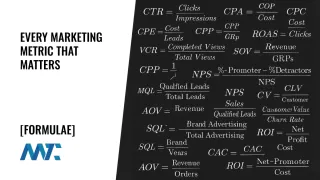I’m on the hunt for my next adventure right now. As I review job openings and network with colleagues, one thing is striking about our industry right now. Whether it’s hiring a Chief Marketing Officer (CMO) or onboarding a marketing agency, the decision isn’t just about cost or credentials—it’s about philosophy. I believe one of the most dangerous mistakes a company can make is buying the “surgery” when what they need is to hire a surgeon.
The metaphor is simple but profound: a surgeon doesn’t begin by operating. They evaluate symptoms, investigate root causes, consider alternatives, and only then recommend surgery—if it’s even needed. By contrast, a surgery is the procedure itself, already predetermined, often applied with little regard for the uniqueness of the individual patient.
Unfortunately, far too many marketers, consultants, and agencies sell themselves as the latter. They come equipped with a toolbox of platforms, playbooks, and proven frameworks, but little curiosity about whether those tools are the right fit. This misalignment is at the heart of why so many enterprise MarTech implementations fail—sometimes more than once.
The Marketing Surgery Trap
Enterprise organizations are especially vulnerable to falling into the surgery trap. Under pressure to modernize or grow quickly, they’re drawn to vendors or marketing leaders who promise quick wins or sweeping transformations. These promises are almost always platform-first and process-later.
The problem? Marketing isn’t one-size-fits-all. What worked at a SaaS startup or an e-commerce brand doesn’t necessarily work at a regional healthcare group or a legacy manufacturer. Moreover, many challenges are related to people and processes, rather than platform issues.
When the emphasis is on tools instead of insight—when the assumption is that this platform or that funnel will fix everything—businesses often end up with a system that amplifies inefficiencies, automates broken processes, or overwhelms already overextended teams.
Why You Need a Marketing Surgeon
A true marketing surgeon leads with diagnosis, not execution. They don’t assume your problem is a lack of personalization or poor attribution—they investigate. They talk to your sales team. They review your customer journey. They audit your tech stack, analyze your content, assess your data integrity, and dig into why past efforts have failed.
They ask questions like:
- Are your processes repeatable and documented?
- Are internal teams empowered and skilled to use the tools you already have?
- Are marketing and sales aligned on definitions, goals, and feedback loops?
- Is your tech stack serving your strategy—or dictating it?
Most importantly, a marketing surgeon challenges your assumptions. They won’t simply agree to the idea of a CDP, a rebrand, or a new CRM implementation. They’ll ask whether it’s necessary, viable, and whether your organization is even ready.
Why MarTech Implementations Fail (And What to Do About It)
The MarTech failure rate isn’t due to bad technology. It’s because businesses rush into complex implementations without understanding the root of their problems. They automate chaos. They pour data into platforms with no governance. They layer tools onto teams without investing in training, integration, or change management.
In many cases, the system wasn’t broken—it was being misused, or trying to compensate for deeper issues, such as a lack of process, missing roles, poor-quality data, or unrealistic expectations.
Before you throw in the towel on your current strategy or platform, ask yourself: Have you consulted with a surgeon?
Takeaways: How to Identify Whether You’re Hiring a Surgeon or a Surgery
- Start with their first questions: Surgeons ask diagnostic questions before offering solutions. If the conversation starts with a pitch deck or platform, you’re likely about to buy a surgery.
- Ask about adaptability, not just experience: Surgery sellers often lean heavily on what they’ve done before. Surgeons are more interested in what’s right for your business, even if it’s new.
- Watch how they respond to your assumptions: A good surgeon will challenge your brief, your strategy, and your goals—respectfully, but directly. If you’re not being pushed, you’re not being evaluated.
- Examine the diversity of their toolkit: Surgeries come with a preferred set of tools and processes, often based on their existing knowledge. Surgeons curate their approach to the patient. They’re tool-agnostic and process-oriented.
- Understand the role of diagnosis in their work: Does the engagement include a discovery phase? Do they interview your team? Review your data? If not, they’re jumping to surgery.
- Look at their definition of success: A surgeon’s success is your business outcome, not just platform adoption or lead volume. They prioritize long-term health over short-term gains.
- Evaluate their willingness to say no: A true strategic partner will tell you when you’re not ready—or when a shiny new system is just a distraction from deeper issues.
Modern marketing requires both strategy and execution, but not in that order. If your organization feels stuck, overwhelmed, or burned by past initiatives, the answer isn’t always to do more. Sometimes, the answer is to pause, diagnose, and get clear about what’s going on.
Because the proper treatment doesn’t begin with surgery, it starts with a surgeon.
If you’re looking for that surgeon, reach out. I’d love to help you diagnose what’s holding your marketing back—and chart a path forward that works.
Schedule a Call with Douglas Karr
